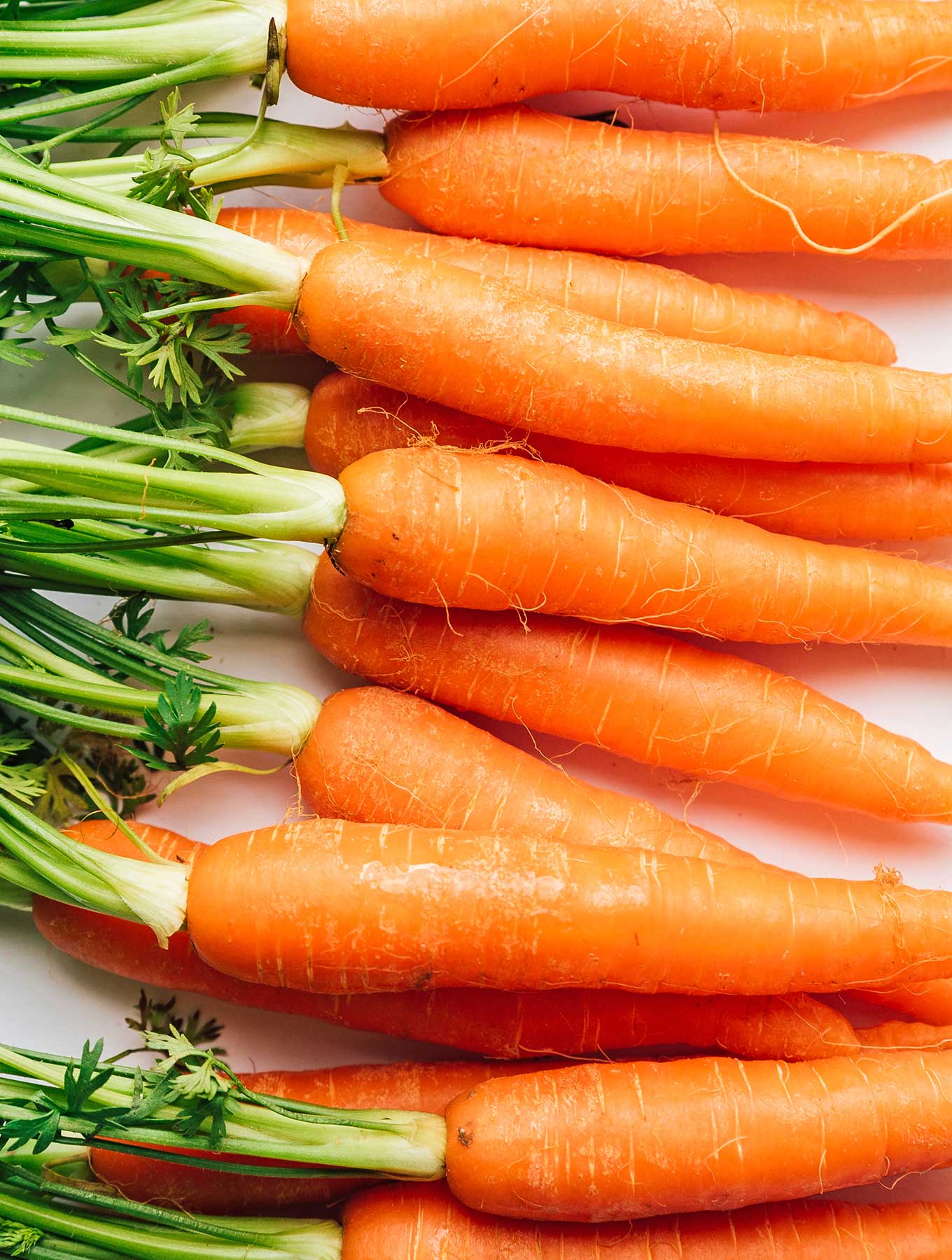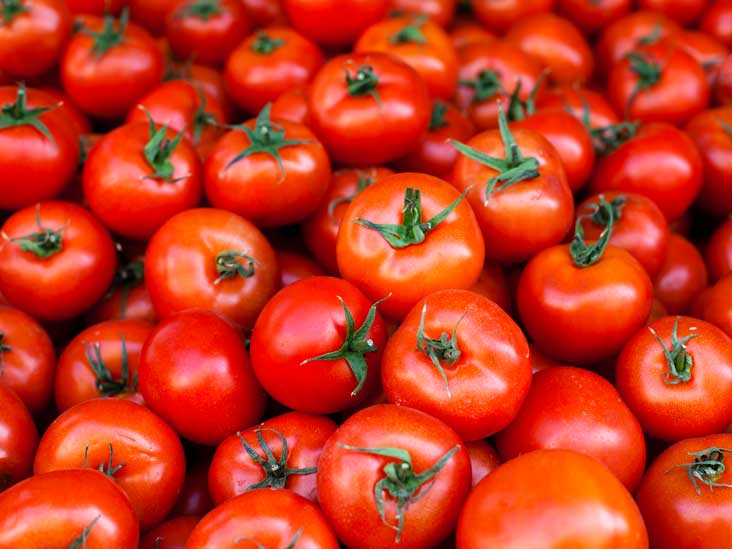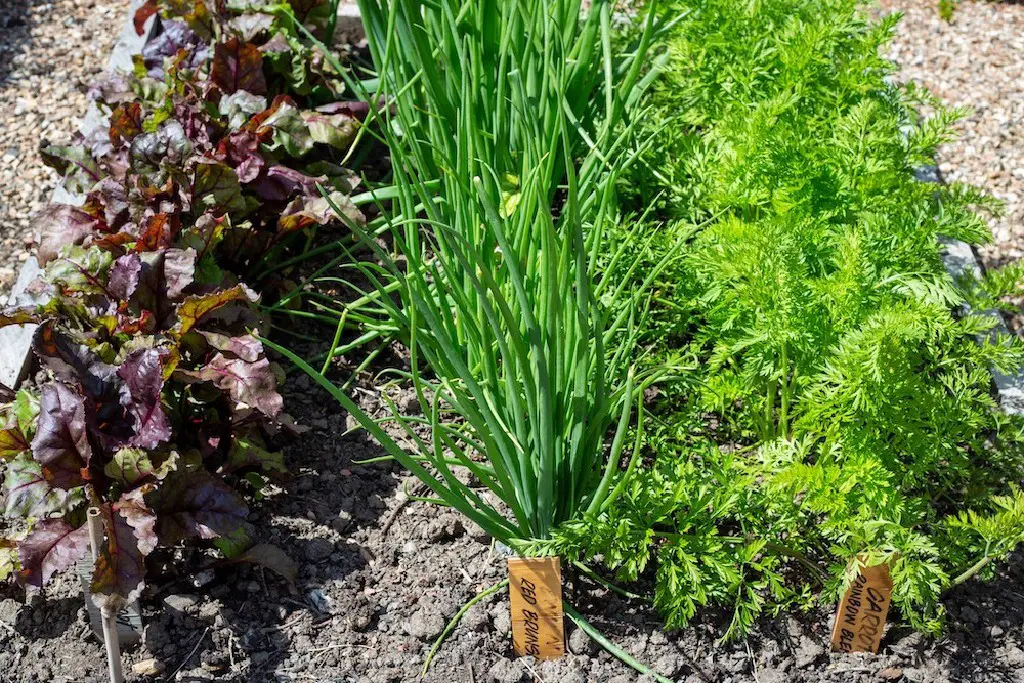Companion Plants That Will Make Your Chives Thrive
Companion Planting That Will Make Your Chives Thrive
Chives are a delicious and versatile herb that can be used in a variety of dishes. They are also relatively easy to grow, and companion planting can help them thrive even more.
In companion planting, you strategically plant different types of plants together to create beneficial relationships. Some plants can help each other repel pests, attract pollinators, or improve the soil quality.
Chives are a great candidate for companion planting because they have a number of beneficial qualities. They are known to repel pests such as aphids, Japanese beetles, and carrot root fly. They also attract pollinators such as bees and butterflies. Additionally, chives can help improve the soil quality by adding nitrogen and other nutrients.
There are a number of different plants that can be paired with chives. Some of the best companion plants for chives include:
- Carrots: Chives can help repel the carrot root fly, a common pest of carrots.

- Peas: Chives can help improve the nitrogen content of the soil, which is beneficial for peas.

- Lettuce: Chives can help repel aphids, which are a common pest of lettuce.
- Tomatoes: Chives can help repel the tomato hornworm, a common pest of tomatoes.

- Roses: Chives can help repel aphids, Japanese beetles, and black spot, a fungal disease that can affect roses.
- Herbs: Chives can be paired with other herbs such as basil, parsley, and mint. These herbs can help each other repel pests and attract pollinators.


When companion planting chives, it is important to consider the spacing requirements of the different plants. Chives can spread quite quickly, so it is important to give them plenty of space. It is also important to choose plants that have similar sunlight and water requirements.
With a little planning, you can use companion planting to help your chives thrive. By pairing them with the right plants, you can help them repel pests, attract pollinators, and improve the soil quality.
Here are some additional tips for companion planting with chives:
- Plant chives near roses to help repel pests and black spot.
- Plant chives near carrots to help repel the carrot root fly.
- Plant chives near peas to help improve the nitrogen content of the soil.
- Plant chives near lettuce to help repel aphids.
- Plant chives near tomatoes to help repel the tomato hornworm.
- Plant chives near other herbs such as basil, parsley, and mint to help each other repel pests and attract pollinators.
Conclusion
Companion planting is a great way to improve the health and productivity of your garden. By pairing chives with the right plants, you can help them thrive and keep pests away. With a little planning, you can create a beautiful and productive garden that is full of delicious and healthy herbs.
Chives are a versatile herb that can be used in a variety of dishes, but they're also a great companion plant for other vegetables in your garden. Chives can help to repel pests, attract pollinators, and improve the flavor of other plants.
Here are some of the best companion plants for chives:
- Carrots: Chives can help to improve the flavor of carrots and deter pests like carrot root fly.
- Tomatoes: Chives can help to repel pests like aphids and improve the flavor of tomatoes.
- Strawberries: Chives can help to deter animals like deer and rabbits from eating strawberries.
- Roses: Chives can help to repel pests like Japanese beetles and black spot from roses.
- Herbs: Chives can be planted with a variety of other herbs, such as dill, parsley, and mint.
If you're looking for more information about companion planting with chives, I recommend visiting Garden Wiki. This website has a wealth of information on the topic, including a list of the best companion plants for chives, as well as tips on how to plant and care for these herbs.
FAQ of companion plants chives
- What are the best companion plants for chives?
Chives are a versatile herb that can be planted with a variety of other plants. Some of the best companion plants for chives include:
* Alliums: Chives are an Allium, so they can be planted alongside other members of the Allium family, such as onions, garlic, and leeks. These plants have similar growing requirements and can help each other deter pests.
* Carrots: Chives can help to repel carrot fly, a common pest of carrots. They can also help to improve the flavor of carrots.
* Tomatoes: Chives can help to repel aphids, which are a common pest of tomatoes. They can also help to improve the flavor of tomatoes.
* Strawberries: Chives can help to deter pests such as slugs and snails, which can damage strawberries. They can also help to improve the flavor of strawberries.
* Roses: Chives can help to repel aphids, Japanese beetles, and black spot, which are all common pests of roses. They can also help to improve the growth and health of roses.
- What are some companion plants that should not be planted near chives?
Some companion plants that should not be planted near chives include:
* Asparagus: Asparagus can suppress the growth of chives.
* Beans: Beans can attract pests that also attack chives, such as aphids and bean beetles.
* Peas: Peas can compete with chives for nutrients and water.
* Spinach: Spinach can attract pests that also attack chives, such as slugs and snails.
* Turnips: Turnips can suppress the growth of chives.
- When is the best time to plant chives?
The best time to plant chives is in early spring or fall. Chives can also be planted in summer, but they may not do as well in hot weather.
- How far apart should chives be planted?
Chives should be planted about 4 to 6 inches apart. This will give them enough space to grow and spread.
- How do I harvest chives?
Chives can be harvested as soon as they are 6 inches tall. To harvest chives, simply cut the leaves off with a pair of scissors or a knife. You can harvest chives as often as you need them.
Image of companion plants chives
- Image 1: Chives and tomatoes. Chives help to repel tomato hornworms and other pests, and they also help to improve the flavor of tomatoes.
- Image 2: Chives and carrots. Chives help to repel carrot flies, and they also help to improve the flavor of carrots.

- Image 3: Chives and roses. Chives help to repel aphids and other pests, and they also help to improve the flavor of roses.

- Image 4: Chives and strawberries. Chives help to repel slugs and snails, and they also help to improve the flavor of strawberries.

- Image 5: Chives and beans. Chives help to repel bean beetles, and they also help to improve the flavor of beans.

Post a Comment for " Companion Plants That Will Make Your Chives Thrive"